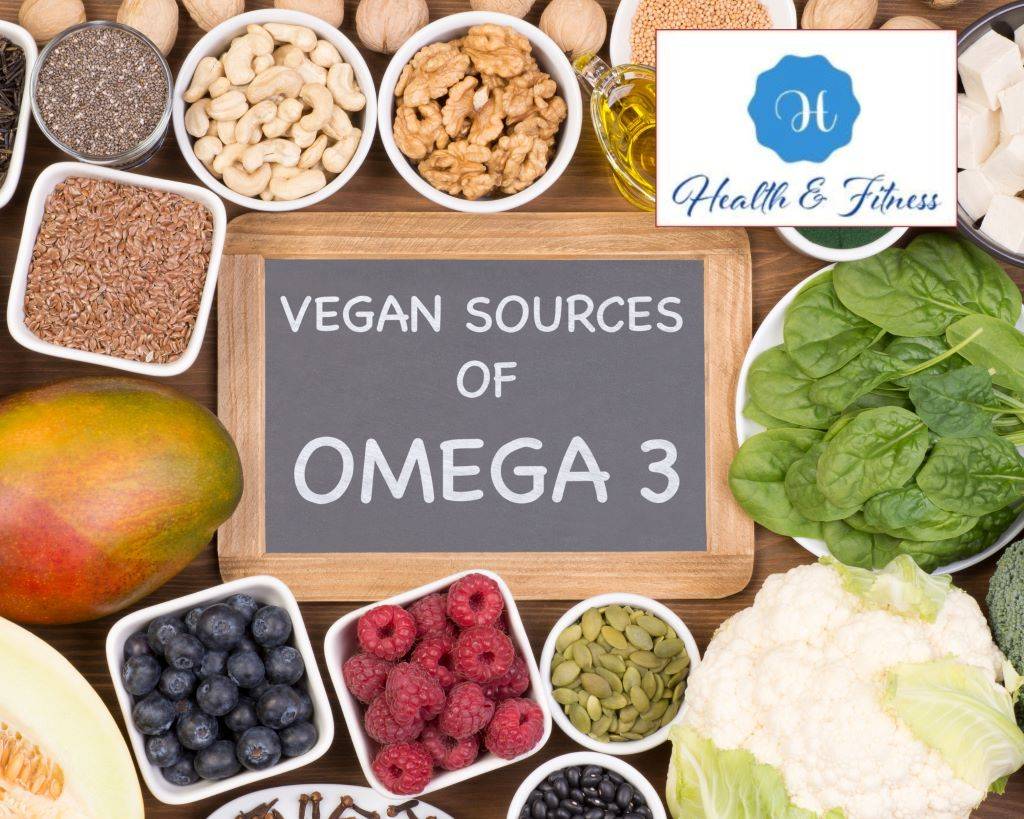Vegan Omega 3: The Key to a Healthy Heart
Discover the power of Vegan Omega 3 for a healthy heart. Explore the benefits of incorporating plant-based ALA-rich foods like flaxseeds, chia seeds, walnuts, and hemp seeds into your diet. Prioritize your heart health and embrace a thriving lifestyle with Vegan Omega 3.
When prioritizing our health, few things are as vital as caring for our hearts. 1. The heart is a powerful organ, pumping blood to every part of our body for seamless function.
2. Omega-3 fatty acids are essential for heart health, making them a vital consideration.
3. Traditionally associated with fish, a plant-based alternative, Non-Fish Omega 3 is gaining popularity.
4. This alternative proves equally beneficial for our hearts, offering a sustainable and compassionate choice.
5. Embrace Vegetarian Omega 3 for a thriving heart and overall well-being, supported by nature’s goodness.
Understanding Vegan Omega 3
Omega-3 fatty acids are essential polyunsaturated fats for heart function and overall well-being. The three primary types of these crucial nutrients are alpha-linolenic acid (ALA), eicosatetraenoic acid (EPA), and docosahexaenoic acid (DHA). Marine sources like fish are rich in EPA and DHA, while plant-based options such as flaxseeds, chia seeds, walnuts, and hemp seeds provide ALA.
For those following a plant-based or vegan lifestyle, Vegan Omega 3 derived from ALA becomes an essential nutrient to incorporate into their diet. ALA is converted in the body to EPA and DHA, providing similar heart-healthy benefits as their marine counterparts.
The Role of Vegan Omega 3 in Heart Health
The advantages of Omega-3 fatty acids for the heart, including Vegetarian Omega 3, have been extensively studied and documented. Here’s how it contributes to a healthy heart:
Supports Cardiovascular Function:
It helps maintain cardiovascular health by reducing blood pressure and supporting optimal blood flow. This can lead to reduced strain on the heart and a lower risk of heart-related issues. A study published in the American Journal of Clinical Nutrition found that ALA intake is associated with a lower risk of fatal heart disease. By supporting the health of blood vessels and improving blood circulation, Vegan omega-3 helps keep the heart in top shape.
Reduces Triglyceride Levels:
High triglyceride levels in the blood can increase the risk of heart disease. It has been demonstrated that vegan omega-3 significantly reduces triglyceride levels, promoting a healthier heart profile. Research conducted by the National Library of Medicine indicates that ALA supplementation significantly lowers triglyceride levels in individuals with hypertriglyceridemia, a condition characterized by high triglyceride levels. Lower triglyceride levels contribute to a healthier cardiovascular system and reduce the risk of heart-related complications.
Anti-Inflammatory Properties:
Inflammation in the body can contribute to various heart-related problems. The anti-inflammatory properties of Vegan Omega 3 aid in mitigating inflammation, safeguarding both the heart and blood vessels. In a comprehensive study published in the Journal of the American College of Cardiology, researchers explored the effects of Omega 3 fatty acids on inflammation and cardiovascular health. Vegan Omega 3 lowered levels of inflammatory markers, reducing the risk of chronic inflammation and its impact on the heart. Embracing Vegan Omega 3 can be a valuable step toward promoting a healthy heart and overall well-being.
Supports Heart Rhythm Stability
Heart health depends on maintaining a steady heartbeat. Vegan Omega 3 supports a regular heartbeat, reducing the risk of irregular heartbeats (arrhythmias) and promoting heart health. According to a research study in the Journal of the American Heart Association, individuals with higher ALA levels demonstrated a reduced risk of atrial fibrillation. The findings of this study highlight the potential benefits of ALA in supporting heart health and reducing the likelihood of irregular heart rhythms. An abnormal heart rhythm can lead to severe complications. Vegan Omega 3’s ability to support heart rhythm stability contributes to a healthy and well-functioning heart.
Improves Cholesterol Profile:
The condition of one’s cholesterol is critical for heart health. Vegan Omega 3 can increase HDL (good cholesterol) and decrease LDL (bad cholesterol), promoting enhanced heart health by lowering cholesterol levels. A meta-analysis published in the Journal of Lipid Research examined the impact of ALA on cholesterol levels. The study concluded that ALA supplementation leads to an increase in HDL cholesterol and a decrease in LDL cholesterol, resulting in a more favourable cholesterol profile.
Sources of Vegan Omega 3
Embracing a plant-based diet doesn’t mean missing essential nutrients like Omega 3. Here are some top vegan omega-3 options to add to your meals:
- Flaxseeds: Flaxseeds are a rich source of ALA, making them an excellent addition to smoothies, salads, or a topping for yogurt.
- Chia Seeds: Chia seeds are packed with ALA and can be sprinkled on oatmeal, blended into smoothies, or used in homemade energy bars.
- Walnuts: Walnuts provide a satisfying crunch and deliver a healthy dose of ALA.
- Hemp Seeds: Hemp seeds contain ALA and are versatile in many dishes, such as salads and granola.
- Seaweed and algae: Certain types of seaweed and algae contain DHA, making them a unique vegan source of this essential fatty acid.
The Importance of Balance and Variety in Nutrition
While vegan omega-3 is undoubtedly beneficial for heart health, it’s essential to remember that nutrition is all about balance and variety. Incorporate a diverse range of nutrient-rich foods into your diet to meet all your nutritional needs. A diet with various fruits, vegetables, whole grains, nuts, seeds, and legumes can provide a broad spectrum of vitamins, minerals, and essential fatty acids like omega-3.
Incorporating Vegan Omega 3 into Your Diet
Ensuring you get adequate Vegan Omega 3 in your diet is essential for reaping its heart-healthy benefits. Here are some creative and delicious ways to incorporate it into your meals:
Veggie-Packed Smoothie:
Blend a handful of spinach, a banana, frozen berries, a tablespoon of ground flaxseeds, and almond milk for a nutrient-rich smoothie loaded with Non-Fish Omega 3.
Chia Seed Pudding:
Create a delectable chia seed pudding by mixing chia seeds with Incorporating a diverse range of nutrient-rich foods such as fruits, vegetables, whole grains, nuts, seeds, and legumes into your diet can provide a broad spectrum of vitamins, minerals, and essential fatty acids like Omega 3. Embrace the benefits of Non-Fish Omega 3 and prioritize your heart health with a well-balanced and nourishing diet. Your favourite plant-based milk, a vanilla extract dash, and maple syrup drizzle. Let it set in the refrigerator overnight and enjoy a wholesome treat the following day.
Omega-3 Trail Mix:
Make your own Omega 3-rich trail mix by combining walnuts, pumpkin seeds, hemp seeds, and a sprinkle of dried fruits. It’s a convenient and healthy snack for on-the-go moments.
Flaxseed Crackers:
Prepare crispy flaxseed crackers by mixing ground flaxseeds, water, and seasonings. Bake until golden brown for a crunchy snack that’s great on its own or with your favourite dip.
Frequently Asked Questions (FAQs)
Q1: Can I get enough Omega 3 on a vegan diet?
A: Yes, you can get sufficient Omega 3 on a vegan diet by incorporating plant-based sources such as flaxseeds, chia seeds, walnuts, and hemp seeds.
Q2: Are Vegan Omega 3 supplements necessary?
A: While a well-balanced vegan diet can provide enough Omega 3, some individuals may supplement with Vegetarian Omega 3 to meet their daily requirements.
Q3: Can Vegan Omega 3 benefit heart health?
A: Yes, studies have shown that Vegetarian Omega 3, specifically ALA, has significant heart-healthy benefits. These benefits include supporting cardiovascular function, reducing triglyceride levels, and promoting heart rhythm stability.
Q4: Can I cook with flaxseeds and retain their Omega 3 benefits?
A: Flaxseeds are best consumed ground, as the whole seeds may pass through the digestive system without releasing their full nutritional benefits. You can sprinkle ground flaxseeds on cooked dishes to retain their Omega 3 benefits.
Q5: Are Vegan Omega 3 sources as effective as fish-based Omega 3?
A: Vegan Omega 3, particularly ALA, is converted in the body to EPA and DHA, which provide similar heart health benefits as fish-based Omega 3. However, consuming a variety of Vegetarian Omega-3 sources is essential to ensure adequate conversion.
Conclusion
Vegan Omega 3 is vital to a healthy heart, offering a plant-based alternative to marine sources. Adding ALA-rich foods like flaxseeds, chia seeds, walnuts, and hemp seeds to your diet can promote heart health and overall well-being. Before making significant dietary changes, consult with a healthcare professional. Incorporating Vegetarian Omega 3 into your daily meals is a step towards nurturing your heart and supporting long-term health. With various delicious ways to enjoy these essential fatty acids, you can embark on a journey of wellness that’s both enjoyable and nourishing. By choosing plant-based sources, you also contribute to a more sustainable and compassionate lifestyle, benefiting yourself and the planet. Let Vegetarian Omega 3 be your guide to a strong and vibrant heart as you transform your well-being one nourishing choice at a time. Nourish your soul with the best – Vegetarian Omega 3 – and embrace a life of abundant heart fullness.
Reference
American Heart Association (AHA) – “Fish and Omega-3 Fatty Acids.”
https://www.heart.org/en/healthy-living/healthy-eating/eat-smart/fats/fish-and-omega-3-fatty-acids
Harvard T.H. Chan School of Public Health – “Omega-3 Fatty Acids: An Essential Contribution.” https://www.hsph.harvard.edu/nutritionsource/what-should-you-eat/fats-and-cholesterol/types-of-fat/omega-3-fats/



